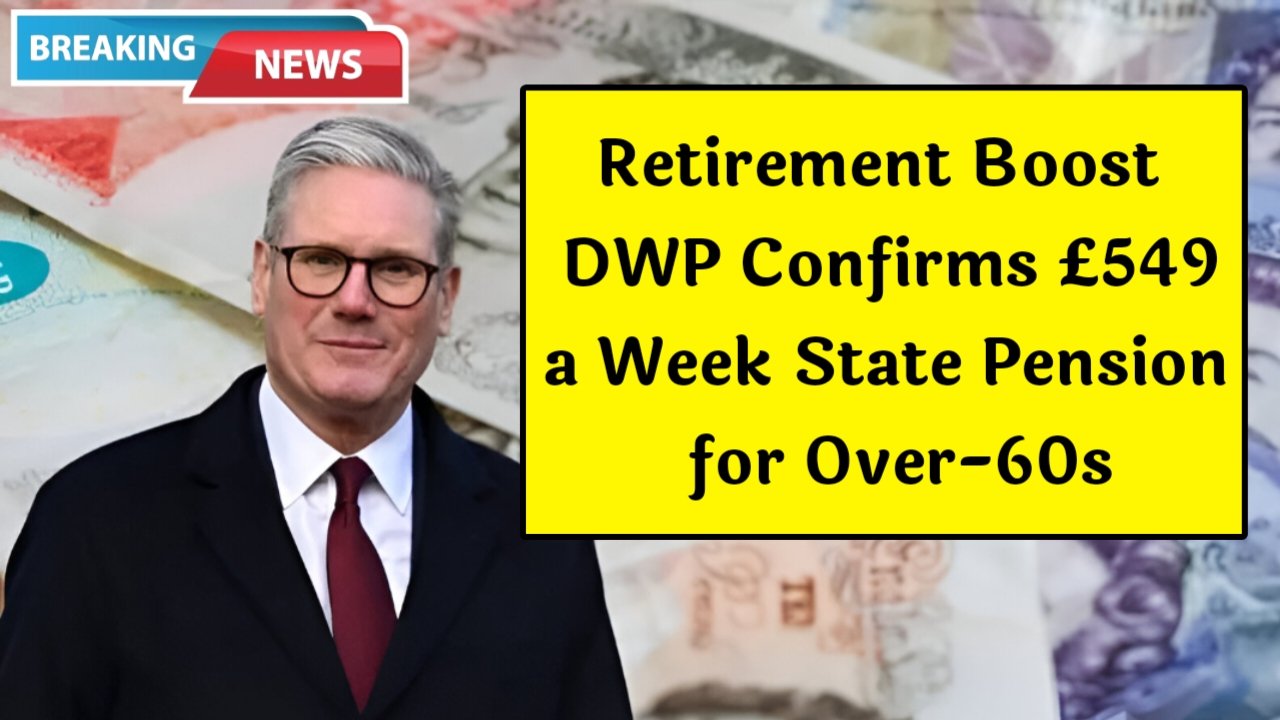The Department for Work and Pensions (DWP) has confirmed a major update for retirees and those approaching retirement age. From September 2025, certain pensioners could receive up to £549 a week under the latest state pension boost. This announcement is being hailed as a huge relief for older citizens struggling with the rising cost of living. With inflation, energy bills, and everyday essentials still hitting household budgets hard, this increase is designed to provide stability and peace of mind. But who exactly will benefit, and how can you make sure you qualify for the maximum amount? Let’s take a closer look.
Who Will Be Eligible for the £549 a Week State Pension?
Not everyone over 60 will automatically receive the full amount of £549 a week. Eligibility depends on your National Insurance (NI) contribution record, as well as the type of pension scheme you fall under. Generally, retirees who have built up a full NI record over their working life stand to receive the maximum payout. Those with incomplete NI contributions may receive less, but they can still top up their record through voluntary contributions in some cases. This makes it essential for individuals approaching retirement age to check their pension forecast and identify any gaps early on.

How the DWP Calculates the New Pension Amount
The state pension increase is tied to the triple lock guarantee, which ensures that pensions rise each year in line with the highest of wage growth, inflation, or 2.5%. The most recent adjustment, combined with additional benefits, has led to the £549 a week figure for qualifying seniors. For many retirees, this represents a significant boost in income, especially compared to previous years. It highlights the government’s commitment to supporting older citizens in the face of economic challenges.
When Will Retirees Start Receiving the New Rate?
The new weekly pension rate will begin to roll out from September 2025, with payments made directly into retirees’ bank accounts. The DWP has confirmed that those already receiving pensions will see the adjustment automatically, while new claimants will start at the updated rate. Payments are usually made every four weeks, which means eligible pensioners could receive over £2,100 a month. This change could make a noticeable difference to budgeting and financial planning for retirees.
Impact on the Cost-of-Living Crisis
The announcement comes at a time when many seniors are feeling the pinch of high prices. Rising food costs, utility bills, and healthcare expenses have left many older people anxious about their future. The £549 a week pension boost aims to ease some of this financial pressure. While critics argue that more support is still needed, especially for those without savings or private pensions, most agree that this increase is a step in the right direction. For many over-60s, it represents much-needed breathing space.
What If You Don’t Qualify for the Full Amount?
If you find that you don’t qualify for the full £549 a week, don’t panic. There are still options available. You may be eligible for Pension Credit, a benefit designed to top up your income if it falls below a certain level. Additionally, checking your NI record and considering voluntary contributions can help you boost your pension entitlement. The DWP also offers online tools and helplines where you can get personalized advice.
Why This Update Matters for Over-60s
This pension update is more than just a financial change—it’s about security and dignity in retirement. For many over-60s, knowing they have a guaranteed income they can rely on makes a huge difference to their independence and lifestyle. It also reflects a broader government strategy to support seniors during uncertain economic times. With more people living longer, ensuring that retirement is comfortable and sustainable has become a national priority.
Final Thoughts
The £549 a week state pension boost confirmed by the DWP marks a turning point for retirees across the UK. While not everyone will qualify for the full amount, those who do can expect a significant improvement in their financial situation. For over-60s, this is welcome news and a reminder to review pension entitlements carefully. With the right planning, this update could help transform retirement into a more secure and enjoyable stage of life.
